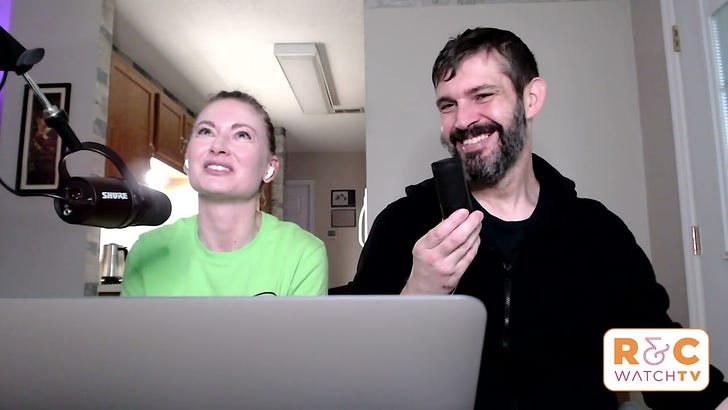Welcome to Sex and the State, a newsletter about power. I’m a writer working on decriminalizing and destigmatizing all things sex. I synthesize empirical evidence, stories, and personal experience to interrogate existing power structures to propose new, hopefully better, ways of relating. To support my work, buy a subscription, follow me on OnlyFans, or just share this post!
~~~~~
I flew from Huntsville to DC two Thursdays ago for the New Directions conference. As far as I can tell, it’s a program of PPI aimed at mobilizing the energy around the Neoliberal Project to propose and support “center-left” policies. At some point I heard “A radical pragmatism for the Democratic Party that speaks to everyone.”
Some points of emphasis included out-innovating China, tackling inflation and debt, modernizing public education, and promoting clean energy, better jobs, and economic growth.
The first day we heard mostly from elected officials. I kept hearing how we can’t ignore the suburbs. And I agree. They must be destroyed. I appreciated how everyone seemed to care about the working class, but without the racism and culture warring I often see from the left and right.
I also appreciated the sentiment that “capitalism” shouldn’t be a byword in Democratic circles. I have my own problems with capitalism, but my understanding is that free exchange, innovation, and economic prosperity have lifted billions out of grinding poverty (though not everyone agrees). I think it makes sense for the Democratic Party to embrace these values, especially as the GOP shifts into National Socialism.
The aforementioned pragmatism came into play, for example, when one of the speakers said that “defund the police” cost the Dems 14 seats in the last election. It’s absurd for many reasons, among them that the Democrats are funding police at least as much as Republicans. And the fact that police funding has only increased since the 1990s, even as crime has halved.
I also heard the theory that House Dems will always be more extreme because their most senior members come from the darkest blue districts. I also heard that leftists eroded support for the Build Back Better Act when they tied it to the bipartisan infrastructure bill. I didn’t even realize these were separate things.
I don’t normally devote any of my precious brain cells toward getting Democrats elected or the difference between BBB and the infrastructure bill. But I value pragmatism as a concept and want the world to actually be better in whatever ways it can be, so it’s nice to be reminded and informed on occasion about these issues.
On day two I heard that our three highest priorities for easing the housing crisis (and the climate crisis) should be:
1. Transit-oriented development. Legalize dense housing near transit stops.
2. Don’t make housing partisan.
3. Experiment with new policy at the state level.
My favorite panel was about child poverty, specifically the Child Tax Credit. I wouldn’t say it changed my thinking on anything, but I did learn new specifics and arguments for what I already broadly believe. I used to oppose benefits to parents specifically, since I don’t really support subsidizing having kids. And I still prefer a UBI. But if you can only alleviate poverty for one cohort, it should probably be kids. Even heartless bastards like myself can get behind all the money you save over the long-term by alleviating child poverty.
So the Child Tax Credit is kind of a UBI for kids. Cash benefits do more than anything else to alleviate child poverty. As it turns out, poverty is really bad for kids. I’ve read elsewhere that poverty is one of several adverse childhood experience (ACES) which are associated with bad outcomes later in life. These include committing crimes, being a victim of crime, having high healthcare costs, being incarcerated, long periods of unemployment, lower educational attainment, etc. Not only do these outcomes suck ass for the individual, but they’re much more expensive for society than preventing poverty in the first place through cash transfers.
And the experiments we’ve run show a UBI has a tiny impact on the labor supply. Plus, the few people who do work less after a UBI tend to spend more time with their kids or otherwise spend the time well. Parental neglect is another adverse childhood experience. People tend to underestimate the cost of absentee parents. For example, kids with absentee parents tend to eat worse food and have higher healthcare costs. Not only that, but there’s evidence that child allowances reduce rates of abortion and divorce. The Child Tax Credit is a rare instance where Matt Brunig and Mitt Romney agree.
Despite all this evidence, only about half of Americans approve of the Child Tax Credit. The left and right both believe it sets a precedent for more cash transfers, but only the left thinks that’s a good thing. Another aspect I hadn’t considered is that we live in a gerontocracy and if you’re not an impoverished parent of a young child, as most voters aren’t, it’s easy to think that we need the money for Medicare.
Essentially, it’s easy to miss how the CTC benefits the economy as a whole.
There was a discussion about childcare costs, which I’ve written about. I favor deregulation and cash benefits over subsidies for many reasons. First, the latter raises costs. A point I hadn’t considered is that because childcare costs differ tremendously based on location, subsidies end up taxing people in Mississippi to subsidize childcare in Manhattan. Another issue is that a lot of childcare establishments are religious.
I also learned about an experiment where bureaucrats made a family’s aid conditional on the kids’ grades. Turns out that having your family’s ability to eat depend on your grades causes performance anxiety bad enough to actually make your grades worse.
I then learned that the marriage penalty under the EITC could result in a woman losing 25% of her income if she married. Researchers have seen people plan their c-sections around CTC cutoffs. People, for the most part, don’t stop working when they get $300 extra each month. But they do stop working if working means they lose their Medicaid.
So that’s a lot of what I learned. Here’s what I wish we’d covered or covered more:
1. Civil liberties, esp government surveillance and “anti-terror” bullshit
2. The Drug War
3. The War on Sex, especially financial discrimination, online censorship, sex work criminalization, and trafficking stings
4. Criminal Justice Reform
As I tried to tell any libertarian who would listen in 2012, neoliberals have plenty of common ground with the most progressive of the progs. I think it’s worthwhile to build coalitions on those issues. And we don’t have the disadvantage of fusionism and a largely GOP donor base. There’s a way to advocate on these issues while appealing to the “center-left.” That the far left hasn’t done that effectively (to say the least) doesn’t mean it’s impossible. It’s very much an opportunity for us “New Democrats” to do a better job on messaging and tactics.















Share this post